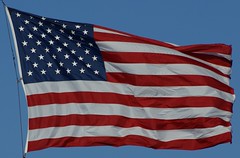If I have been quieter than usual over the past couple of weeks, I can blame it only partially on the fact that I’ve been traveling. The other part is that now that I have returned to vegetarianism, the issues surrounding meat seem more complicated than ever.
In my search for clarity, I have finally gotten around to reading Animal Liberation, Peter Singer’s seminal philosophical treatise on the moral indefensibility of humans’ treatment of animals.
I am hardly the first reader to peruse Singer’s arguments—the book has been reissued twice since its original publication in 1975—and many authors and thinkers have responded to the claims in Animal Liberation with more skill and insight than I can hope to achieve.
I can do little more than echo what many have surely thought after reading Animal Liberation: this book is moving and troubling. Its philosophical reasoning is airtight, and its descriptions of factory farms and scientific laboratories are horrifying. I finished the book wanting everyone I know (and everyone I don’t know) to read it—not because I want to indoctrinate them to be “vegangelists” (as some have cleverly and accurately put it), but because the book raises issues that aren’t often talked about yet that every conscientious person ought to consider.
The trouble is that Animal Liberation is not high on most people’s literary to-do list, and that, taken out of context, Singer’s claims sound laughable or offensive. People do not like to be accused of “speciesism,” to use Singer’s neologism, just as they don’t like to be accused of racism or sexism. People do not like to think of themselves as tyrannical human overlords cruelly exploiting hens for their eggs. People particularly do not like hearing comparisons between modern-day treatment of animals and Nazi treatment of Jews and minorities during the Holocaust.
When faced with these claims and accusations out of the context of a coolly logical argument, the average omnivore understandably feels estrangement from and anger towards his or her vegetarian accuser. (I speak from personal experience. It’s not fun to be harangued for one’s dietary choices.)
So what can be done to bridge the gap between those Singerite vegetarians who wholeheartedly wish to reduce animal suffering and those who choose to eat meat?
Obviously, there are many potential ways to answer this question, but one important move that shouldn’t be underestimated is for animal rights activists to lay off their moral absolutism, self-righteousness and judgment of meat-eaters. Animal Liberation is far more levelheaded and unemotional than the average anti-meat propaganda, but even Singer is prone to asking readers to
recognize the moral necessity of refusing to buy or eat the flesh or other products of animals who have been reared in modern factory farm conditions. This is the clearest case of all, the absolute minimum that anyone with the capacity to look beyond considerations of narrow self-interest should be able to accept.
I beg to differ. Many thoughtful and compassionate people choose to eat meat for a variety of reasons, not all of which are trivial. I think that anyone can make small dietary changes, short of forsaking all meat—and even short of forsaking all factory farm meat—to reduce animal suffering. The simplistic view that anyone who eats meat is necessarily selfish accomplishes nothing but division and resentment.
Utilitarianism, the philosophical school to which Singer subscribes, holds that the consequences of an action determine its moral value. The consequences of educating people about where their food comes from and in listening compassionately and respectfully to their reasons for eating meat cannot be anything but good.
Judging, lecturing and accusing meat-eaters of selfishness, on the other hand, will lead only to more alienation and reluctance to change. What’s utilitarian about that?


